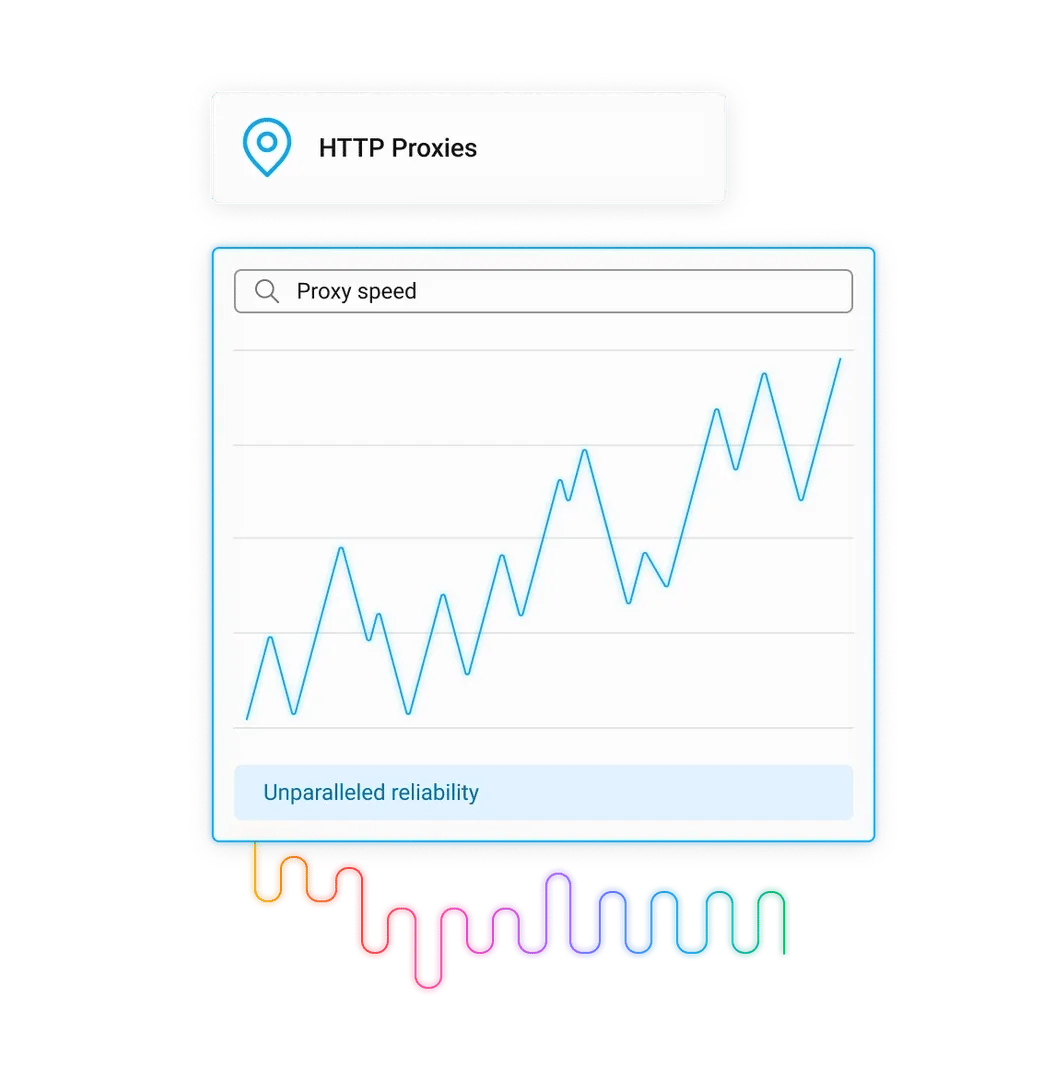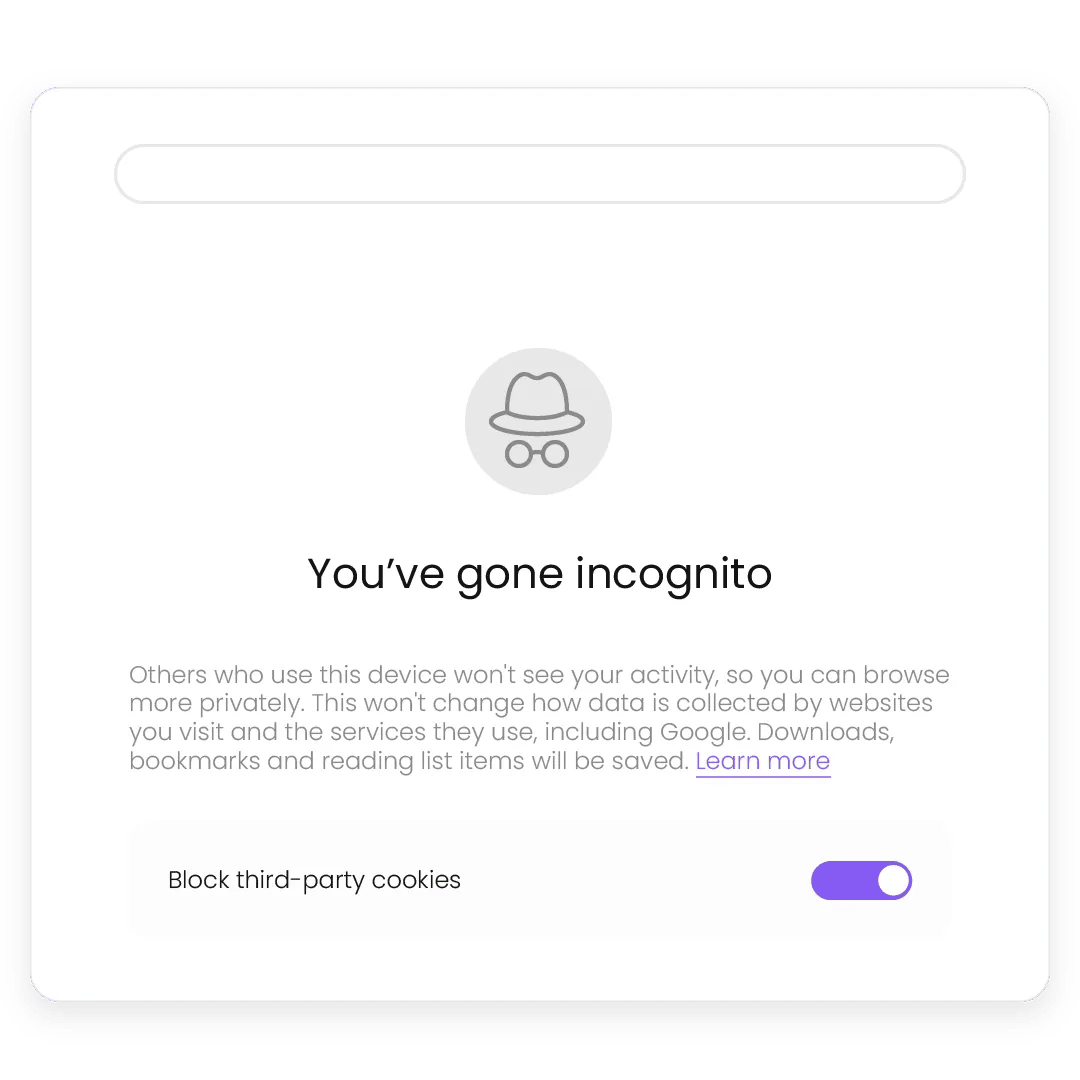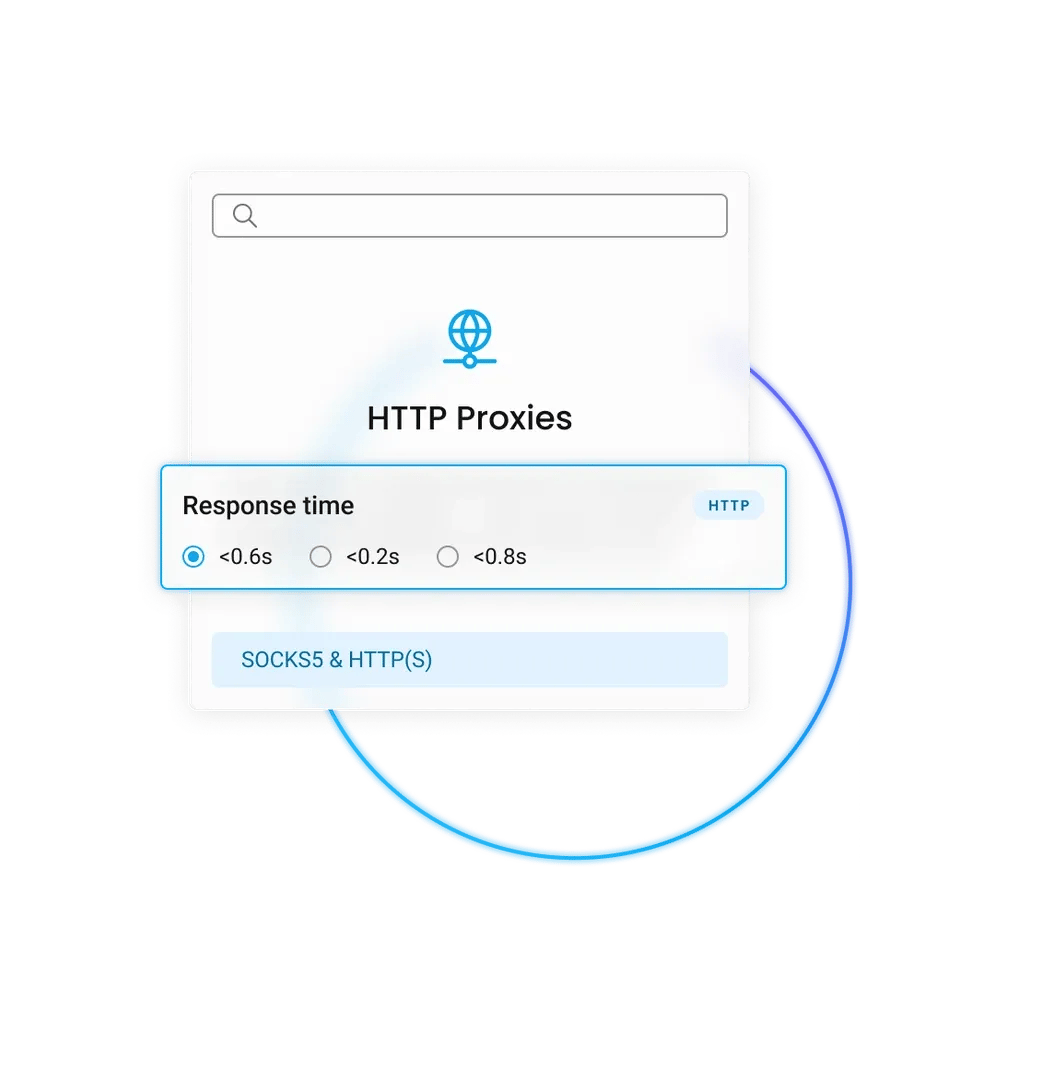Buy HTTP Proxies
Unlock the web data you need with our fast and reliable HTTP(S) proxies. Access geo-restricted content and bypass CAPTCHAs effortlessly.
14-day money-back option
Choose the best HTTP proxy type for your needs
Get the perfect HTTP proxy match – choose from residential, shared and dedicated, mobile, or static residential (ISP) proxies and experience unmatched reliability.
Residential
Shared & dedicated datacenter
Mobile
Static residential (ISP)
Protocols
SOCKS5 & HTTP(S)
SOCKS5 & HTTP(S)
SOCKS5 & HTTP(S)
SOCKS5 & HTTP(S)
Best for
Multi-accounting, market intelligence, ad verification, web scraping.
Market intelligence, cybersecurity, browsing.
App testing, multi-accounting, AdTech, price aggregation.
Monitoring SEO, web scraping, accessing “mission critical” apps
Targeting
195+ locations worldwide
Worldwide locations
130+ locations worldwide
9 countries
Response time
<0.6s
<0.2s
<0.8s
<0.2s
Pay for
GBs
GBs or IPs
GBs
GBs or IPs
Discover HTTP proxy locations worldwide
Explore a vast network of HTTP proxies strategically located around the globe, giving you complete access to content and services from virtually any location.
Whether you need to target a specific country, state, city, ZIP code, or ASN, our massive SOCKS5 and HTTP(S) IP pool allows you to pinpoint the exact location.
HTTP-supported proxies from trusted provider

Experience unmatched speed and reliability
Our HTTP and HTTPS proxies are engineered to deliver lightning-fast speeds and unparalleled reliability, helping you to complete all sorts of online tasks without a single restriction.
With a robust infrastructure designed to avoid downtime, you can count on consistent performance for everything from web scraping and multi-accounting to accessing geo-restricted content or completing ad verification tasks.
Wave goodbye to interruptions and hello to seamless browsing and data collection.

Enhance your privacy and security
Protect your digital identity with our secure HTTP(S) proxies, which act as a shield between your device and the internet. By masking your IP address, our proxies provide an additional layer of privacy, allowing you to browse with confidence.
Whether you're conducting business research or simply safeguarding personal information, our proxies ensure you remain safe while surfing the internet.
High-performance HTTP proxies for every task
Boost your online tasks with fast and reliable HTTP proxies. Enhanced with advanced security and performance features, SOCKS5 and HTTP(S) proxies deliver the best value in the market.
Lightning-fast speed
Experience rapid data transfer and surf the web efficiently with our high-performance proxies.
High reliability
Enjoy 99.99% uptime and leave interruptions to your daily workflows behind.
Global coverage
Access 125M+ IPs in various worldwide locations with free advanced geo-targeting.
Enhanced privacy
Protect your digital identity by masking your IP address, letting your online activities remain anonymous.
Advanced security
Get encrypted connections that safeguard your data against potential threats.
Easy management
Leverage user-friendly dashboard to monitor usage, create proxy users, and manage IP whitelisting effortlessly.
Test SOCKS5 and HTTP(S) proxies for free
Start your 3-day free trial with 100 MB today.
Explore HTTP proxies use cases
Discover how HTTP proxies can help enhance your daily workflows – whether you’re managing multiple accounts, running competitor research, or completing SEO keyword analysis.
Web scraping
Collect data from even the most advanced targets and fuel your web data projects.
Bypass geo-restrictions
Access region-specific websites and content by switching to a local IP address.
Ad verification
Detect and remove bot traffic from your paid advertising campaigns to optimize budget allocation.
Multi-accounting
Manage multiple social media or eCommerce accounts and avoid shadow or IP bans.
SEO
Perform website audits, monitor localized content performance, and track search engine ranking fluctuations in global SERP.
AI training
Collect large datasets to develop and refine AI models, including LLMs, SLMs, GPTs, and AI-powered agents.
What people are saying about us
We're thrilled to have the support of our 130K+ clients and the industry's best.
Attentive service
The professional expertise of the Decodo solution has significantly boosted our business growth while enhancing overall efficiency and effectiveness.
N
Novabeyond
Easy to get things done
Decodo provides great service with a simple setup and friendly support team.
R
RoiDynamic
A key to our work
Decodo enables us to develop and test applications in varied environments while supporting precise data collection for research and audience profiling.
C
Cybereg
Featured in:
Frequently asked questions
What is HTTP proxies?
An HTTP proxy is a server that acts as an intermediary between the user and the website, forwarding HTTP requests and responses. It sits between a user’s device and the internet, routing the traffic through the proxy server. HTTP proxies can be used for various use cases, including multi-accounting, ad verification, web scraping, and SEO monitoring.
How HTTP proxies work?
HTTP proxies work by filtering requests from users and forwarding them to the target web servers. When a user sends an HTTP request, the proxy forwards the request and passes it to the website the user is accessing. The proxy can modify the request, such as by adding authentication information or filtering content. Once the server responds, the proxy receives the response, potentially modifies it, and then forwards it back to the user.
What are the different types of HTTP proxies?
There are several types of HTTP proxies, including residential proxies, mobile proxies, datacenter proxies, and static residential (ISP) proxies. Based on your use case, you can choose the one that best matches your needs. We recommend trying out our Proxy Checker by sending a test request – we’ll give you the exact product match based on your targets.
What are the benefits of using HTTP proxies?
HTTP proxies offer several benefits, including improved browsing speed through caching, content filtering and monitoring capabilities, and the ability to bypass geo-restrictions. This proxy type can provide a level of anonymity by masking the user's original IP address, enhancing privacy and security. Additionally, HTTP proxies can be used for load balancing and optimizing network performance by reducing bandwidth usage through caching frequently accessed content.
How do I set up an HTTP proxy?
To set up an HTTP proxy, first create an account and then log in to our dashboard. Then, select the product that suits your use case and get a free trial or a subscription. After activating the solution, you’ll then access the proxy endpoints. Copy them and paste the endpoints to your third-party tool. Test the connection by using IP checker tools to see whether you get a new IP assigned.
Should I turn on HTTP proxy on my iPhone?
Turning on an HTTP proxy on your iPhone can be useful for accessing restricted content or enhancing privacy. To enable it, go to Settings, then Wi-Fi, select your connected network, choose Configure Proxy, and select Manual. Enter the proxy server details from your proxy provider.
Buy HTTP Proxy Servers
Enhance your web data projects with 125M+ IPs from 195+ locations.
14-day money-back option
